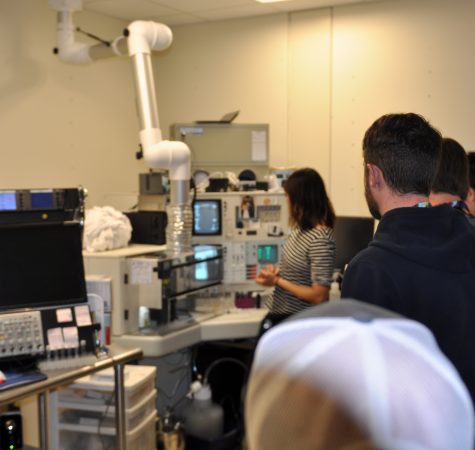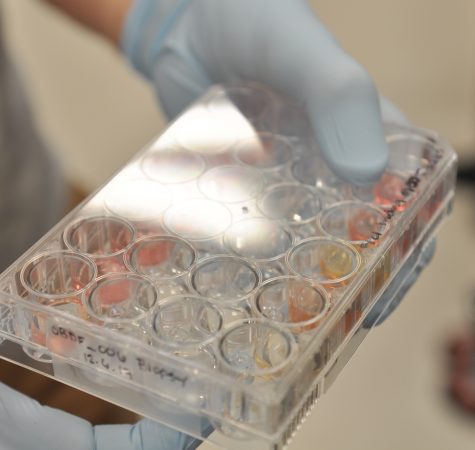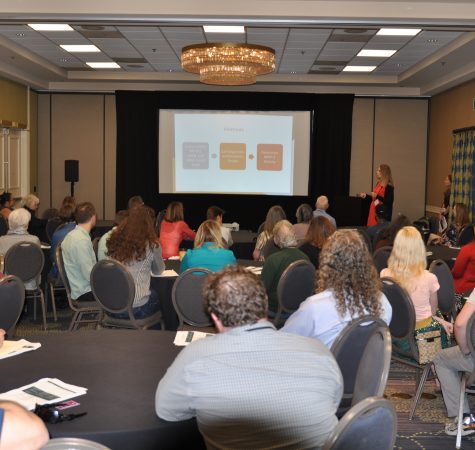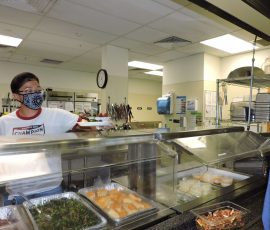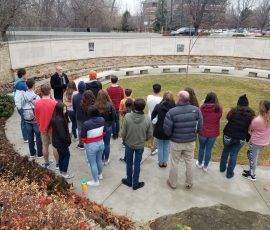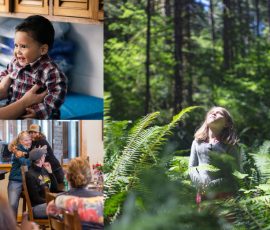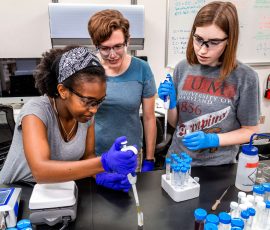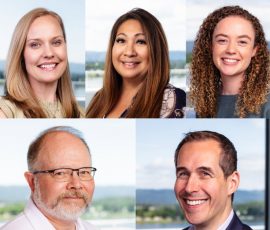Effective methods of marking and sorting individual cells for study. Behavioral patterns of invasive marine species. How cancers develop, and new data on possible treatments. These were just a few of the dozens of subjects discussed during an action-packed two days at the annual Partners in Science National Conference held earlier this month in San Diego, California.
Designed to help science educators in the Pacific Northwest gain new tools to help inspire students in the classroom, this program has been raising the level of scientific research and education across our region for more than two decades by bringing high school instructors together with researchers from a wide variety of backgrounds to collaborate.
Our 2018 participants began their conference on the road, visiting several area laboratories and research facilities where they had the chance to observe cutting-edge studies up close and network with scientists in a variety of backgrounds. Once the tour buses returned to the hotel, it was time for our participants to take center stage.
One of the hallmarks of the Partners in Science program is our mentorship program. A high school educator is paired with a researcher in an academic or nonprofit lab where they work for two summers on a defined research project. During those two years of work, participants report back on their results. Following their first summer, our educators provide an update on their research through an illustrated poster presentation at the national conference. Once research is complete in year two, participants make an oral presentation to their peers and share how they will continue this work in the future. This year’s participants did not disappoint as presentation after presentation wowed attendees and demonstrated top-level research.
Science and education were two of Jack Murdock’s deepest passions, and they stand today as key pillars of the work conducted by the Trust. It is a privilege to bring so many dedicated, passionate educators together and witness their enthusiasm for research and their students. We look forward to sharing with you more exciting developments related to the Partners in Science program in the coming months. In the meantime, we are sincerely grateful to all of our research partners who help make this program a success every year.


